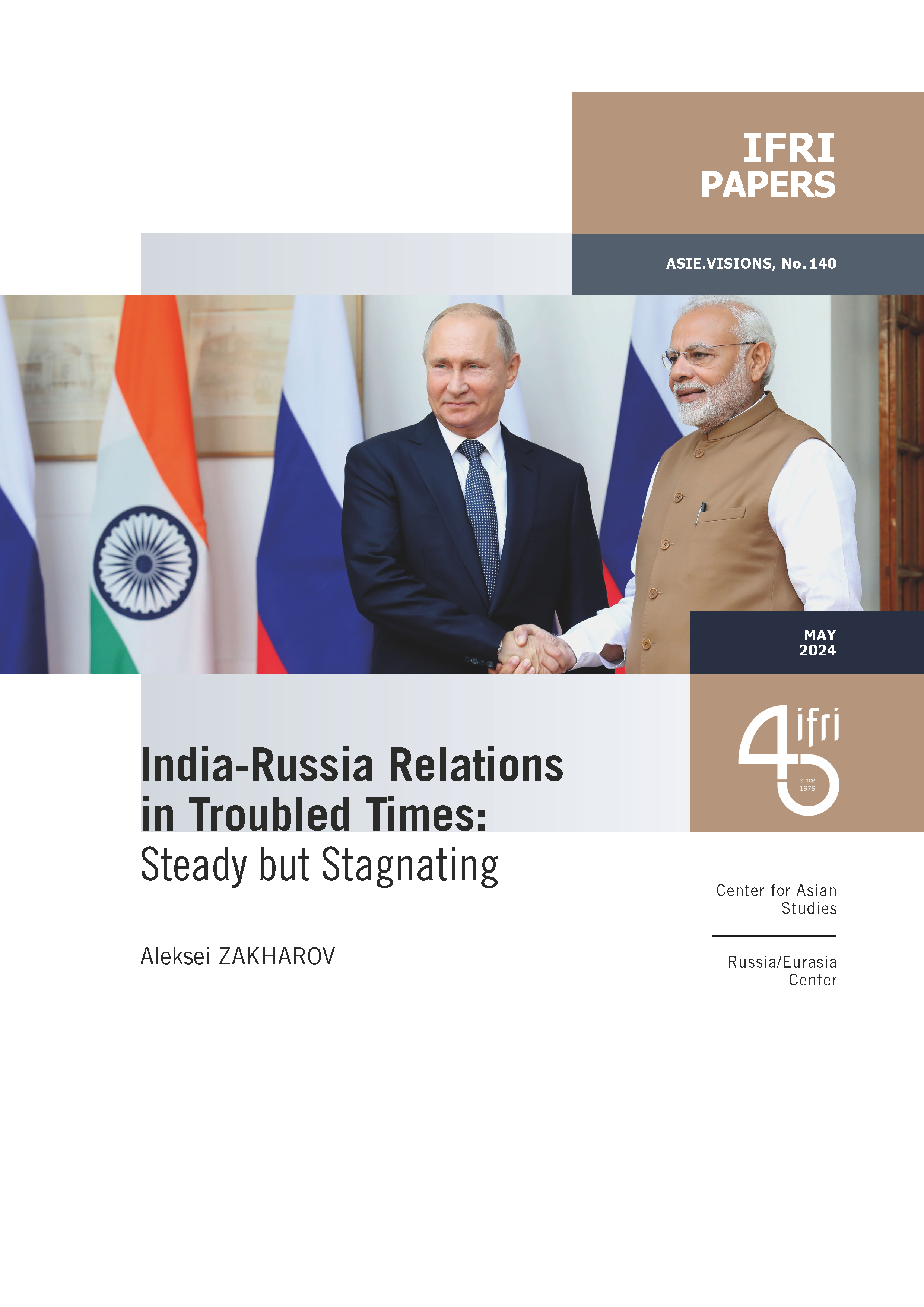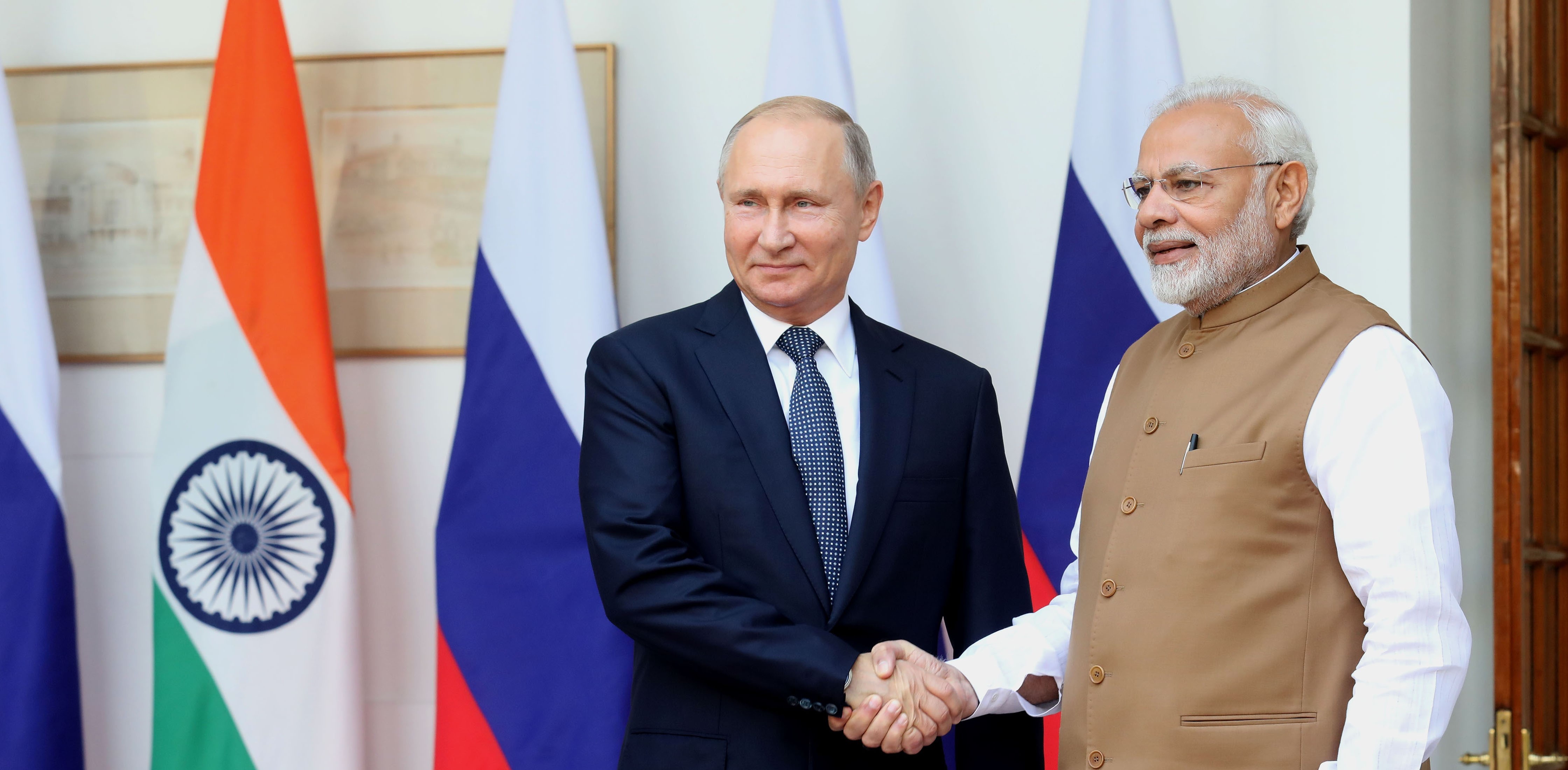India-Russia Relations in Troubled Times: Steady but Stagnating

This paper examines the trajectory of India-Russia relations post-February 2022. The war in Ukraine emerged as a significant challenge for bilateral ties, presenting new obstacles to political and diplomatic relations and intensifying the previous difficulties in developing economic cooperation.

Moscow and New Delhi have demonstrated divergent approaches to the advancement of their strategic partnership. While Russia has rushed into reinventing the old friendship with India, the latter has acted with greater discretion.
New Delhi has demonstrated a nuanced approach to navigating the Russia-Ukraine conflict, staying on good terms with Moscow and the West. India’s record imports of Russian crude and other commodities, at times in defiance of Western sanctions, have allowed for a considerable boost in bilateral trade. While this “oil connection” may benefit both the Indian and Russian economies, it should not be misperceived as a leap forward in partnership.
The structural challenges appear to still prevent the two sides from reinvigorating the economic ties. Furthermore, their geopolitical understanding is waning, and their defense cooperation is currently in a state of limbo. As long as the war in Ukraine persists, India seems to be prioritizing maintaining the status quo in its relationship with Russia over pursuing new initiatives. This may help to prevent the two sides from drifting apart too far in the near term but is unlikely to lead to any substantive progress in their relationship.

Available in:
Regions and themes
ISBN / ISSN
Share
Download the full analysis
This page contains only a summary of our work. If you would like to have access to all the information from our research on the subject, you can download the full version in PDF format.
India-Russia Relations in Troubled Times: Steady but Stagnating
Related centers and programs
Discover our other research centers and programsFind out more
Discover all our analysesJapan’s Takaichi Landslide: A New Face of Power
Prime Minister Sanae Takaichi has turned her exceptional popularity into a historic political victory. The snap elections of February 8 delivered an overwhelming majority for the Liberal Democratic Party (LDP), driven by strong support from young voters, drawn to her iconoclastic and dynamic image, and from conservative voters reassured by her vision of national assertiveness. This popularity lays the foundation for an ambitious strategy on both the domestic and international fronts.
The U.S. Policy Toward Taiwan Beyond Donald Trump: Mapping the American Stakeholders of U.S.-Taiwan Relations
Donald Trump’s return to the White House reintroduced acute uncertainty into the security commitment of the United States (U.S.) to Taiwan. Unlike President Joe Biden, who repeatedly stated the determination to defend Taiwan, President Trump refrains from commenting on the hypothetical U.S. response in the context of a cross-Strait crisis.

China’s Strategy Toward Pacific Island countries: Countering Taiwan and Western Influence
Over the past decade, China has deployed a diplomatic strategy toward the Pacific Island Countries (PICs). This strategy pursues two main objectives: countering Taiwan's diplomatic influence in the region and countering the influence of liberal democracies in what Beijing refers to as the "Global South."

Opening up the G7 to South Korea to Address Contemporary Global Challenges
The G7’s global influence has diminished as powers like China reshape international governance through initiatives such as BRICS and the Shanghai Cooperation Organisation (SCO). With the G7 now representing just 10 per cent of the world’s population and 28 per cent of global GDP, its relevance is increasingly questioned.








